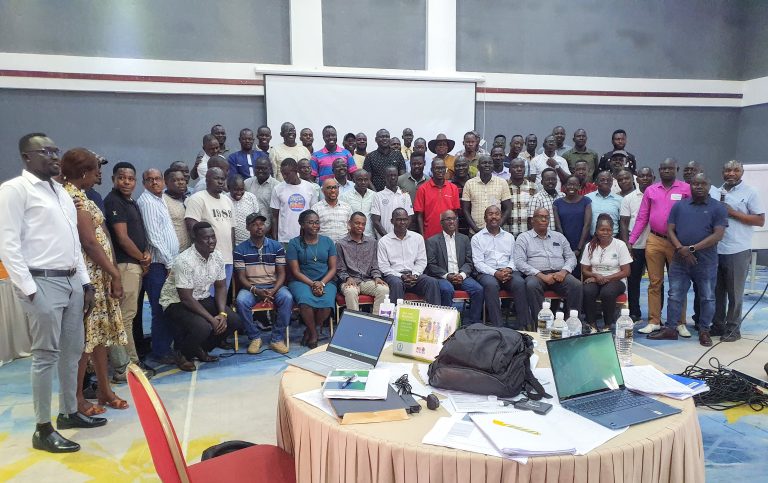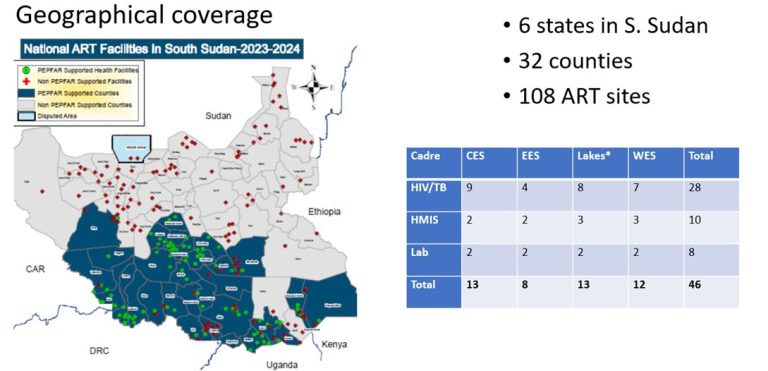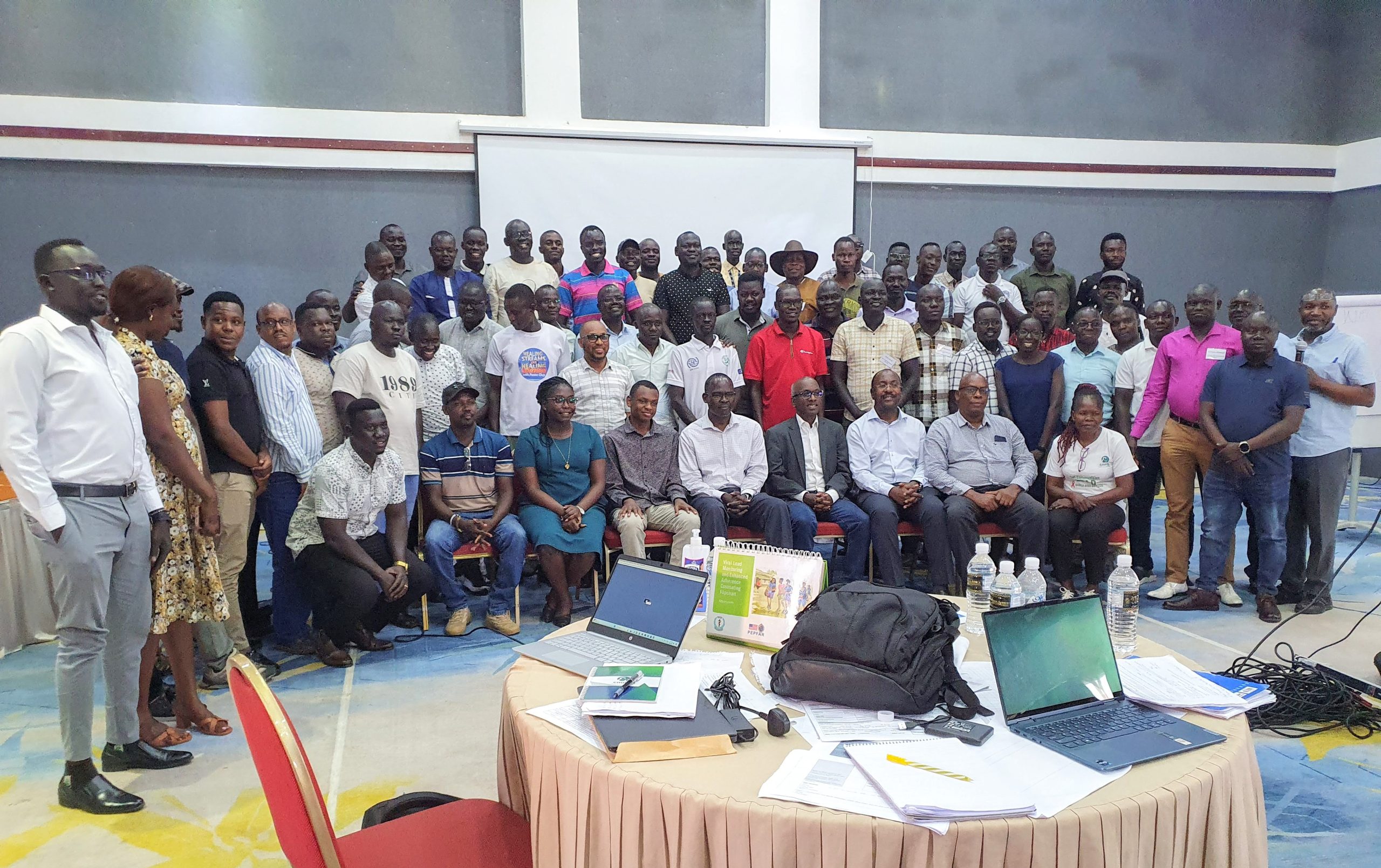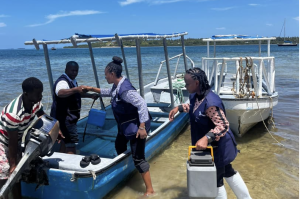AFENET bolsters South Sudan’s health system to fight dual HIV/TB crisis
-
by
AFENET
The strengthening National Health Information System (HIS) to generate quality health data for informed decision making in South Sudan project has registered significant progress since its inception in 2023, according to a new progress report.
With funding from the Centers for Disease Control and Prevention (CDC), the African Field Epidemiology Network (AFENET) has collaborated with South Sudan’s Ministry of Health to strengthen TB and HIV services at every level of the health system, enabling a more robust response to the nation’s dual TB/HIV epidemic.
“As the PEPEFAR’s interagency coordination mechanism, AFENET HIV HSS Project revitalized the national HIV Incident Management System (IMS) Coordination Unit through the recruitment of HIV IMS Coordinator, reactivation of Technical Working Groups (TWGs), bringing together key stakeholders and leading efforts to monitor the national/subnational response for HIV/TB dual epidemic,” the report reads in part.
The collaboration has also seen the recruitment and deployment of 46 field officers, including 28 HIV/TB clinicians, 10 data officers and eight laboratory officers, to enhance the inadequate human resource levels for health.

Through these field officers, capacity building for health care providers was enhanced in the PEPFAR supported States /Facilities through rigorous supportive supervision and mentorship to improve the quality /access of HIV service delivery.
AFENET has also supported the development and implementation of PEPFAR Community Guidelines for community health systems strenghtening. To effect this, 371 community cadres were trained.
By guaranteeing the availability of M&E tools, appropriate documentation, efficient reporting, including the use of DHIS2, data analysis and utilization, and data quality assessments, the project has improved data management at all levels to strengthen national health program monitoring and evaluation (M&E).
After the Community HIV PEPFAR guidelines were developed, the project started several initiatives to support the planning and coordination of diverse service delivery models with an emphasis on community HIV prevention activities to encourage the use of community services. “The project supported the implementation of the guidelines, which included training community health workers, distributing community tools such as M&E tools and standard operating procedures, and supporting community health workers’ supervision and mentorship.”
Regarding assisting Human Resources for Health in developing skills for HIV/TB service delivery through the Extension for Community Healthcare Outcomes (project ECHO), the project trained more than 300 frontline health workers in the provision of high-quality HIV/AIDS services and supported and maintained the operation of 57 ECHO sites.
Limited ownership and engagement at national level, severe shortage of human resources for health, frequent security and civil strife events, and geographic barriers and poor road infrastructure were cited as some of the challenges.

About HIV in South Sudan
South Sudan has an estimated population of 14.7 million people. The country is faced with a generalized epidemic, with an estimated 19,000 HIV infections annually. By the end of 2023, South Sudan had an estimated 180,000 people living with HIV (PLHIV). However, only 54% of the estimated PLHIV were on treatment nationwide. Further, of those receiving HIV treatment, 82% were virally suppressed against the 95% target. Therefore, there is an urgent need to strengthen the HIV response for South Sudan, to accelerate the country’s progress towards the 95–95–95 targets for all sub-populations, age groups, and geographic settings.




